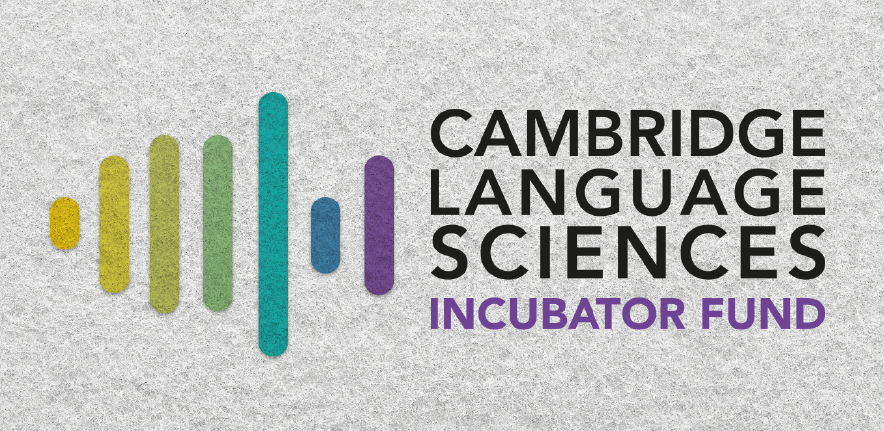
Submitted by Jane Durkin on Mon, 08/03/2021 - 11:47
We are delighted to announce that three more projects have been awarded seed funding through the Language Sciences Incubator Fund.
Successful applicants
Successful applicants from the latest call, which closed in February 2021, were announced on 1 March.
All three projects address highly-topical research questions with potentially significant societal impact.
They include a new research collaboration between speech, hearing and education specialists from the Phonetics Laboratory, MRC Cognition and Brain Sciences Unit and Faculty of Education into the communication difficulties caused by facemasks in school settings.
The second project aims to address the relatively unexplored question in natural language processing of how to design dialogue agents or "bots" which can participate in group discussions and engage on problem-focussed discussions.
The final of the three projects brings together combined expertise on education technology, machine learning, language assessment, and the neurocognition of speech processing to help develop an adaptive and personalised listening skills application for English language learning.
We would like to congratulate all concerned, and to thank the reviewers and advisors for being generous with their time. Posters on the funded research will be presented at the Cambridge Language Sciences Annual Symposium in November 2021.
PerMaSC: Speech Perception through Masks in School Contexts
Kirsty McDougall (PI), Julia Schwarz (Main Investigator), Katrina Kechun Li (Main Investigator), Jasper Hong Sim, Yixin Zhang & Brechtje Post (Phonetics Laboratory); Lizzie Buchanan-Worster & Lorna Halliday (MRC-CBU); Jenny Gibson (Faculty of Education)
The aim of the study is to investigate to what extent facemasks pose speech processing challenges for children compared to adults, which factors cause these difficulties, and how they could be reduced in a classroom context. The results will provide more clarity on the effects of facemasks on intelligibility - both visual and auditory - and will inform us about the advantages and disadvantages of different types of facemasks used in classroom settings.
DEliData: Deliberation Enhancing Data
Andreas Vlachos (PI) & Georgi Karadzhov (Dept. of Computer Science & Technology), Tom Stafford (Dept. of Psychology, University of Sheffield)
This project brings together research expertise in computer science and psychology from the Universities of Cambridge and Sheffield. The aim is to create a corpus which can be used to interrogate the linguistic and psychological factors which support group problem solving. It is hoped that the generated corpus can be used for training dialogue agents ("bots") which can participate in group discussions. The project will address the problem of how to design bots which can engage on problem-focussed discussions where an objective answer is not available and there exists a real risk of bias from quirks of individual psychology.
Listening practice for English learners: towards an intelligent tutoring system
Andrew Caines (PI) & Paula Buttery (Dept. of Computer Science & Technology), Mirjana Bozic (Dept. of Psychology), Mark Elliott & Hye-won Lee (Cambridge Assessment)
This project brings together combined expertise on education technology, machine learning, language assessment, and the neurocognition of speech processing. It aims to develop applications for students of English as a second language to practise exam-style comprehension exercises ('listening items'), in a low-stakes environment. It is hoped that the initial data from this project can help develop a language learning web application which enables learners of English to practise their listening skills, with the ability to track each learner's performance and offer individual feedback indicating which listening skills are in need of improvement, with further practice items to work on.
About the Incubator Fund
The Incubator Fund, established by Cambridge Language Sciences with additional funding from the Isaac Newton Trust and Cambridge University Press, is a small grants fund designed to foster innovative interdisciplinary research in the language sciences.
Since the Incubator Fund was established in 2016, over £83,500 of seed funding has been awarded across 29 projects. As well as the opportunity to develop new ideas, collaborations and approaches, Incubator Fund projects can provide proof of concept or evidence of collaboration for larger grant applications. Other positive outcomes include knowledge exchange studentships, publications, fellowships and further career opportunities for researchers involved.
Please visit the Incubator Fund page for more information and to see a full list of Language Sciences Incubator Fund projects.
